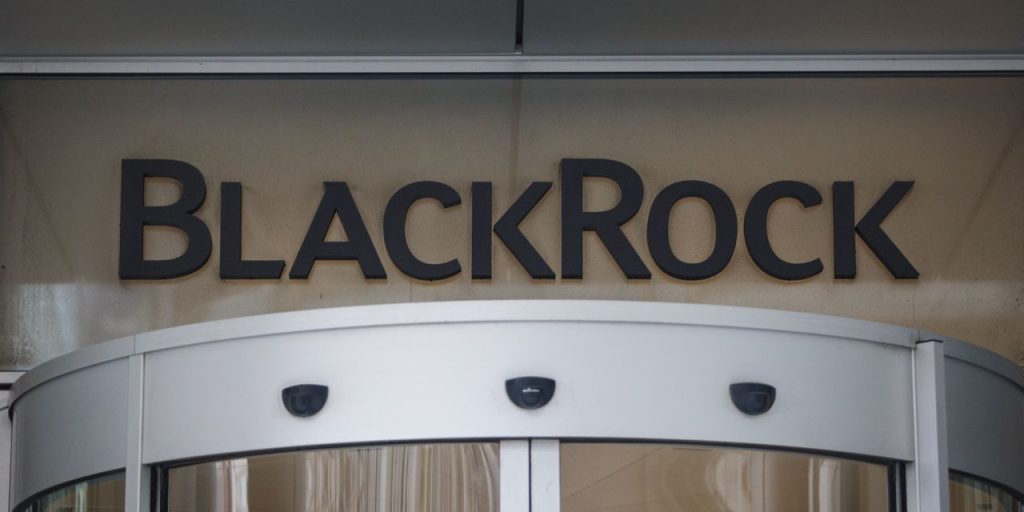A House committee is investigating two U.S. financial giants for allegedly investing or enabling the investment of American capital into Chinese companies that strengthen Beijing’s military and facilitate human-rights abuses, but other companies also could draw such scrutiny, according to one expert.
The House Select Committee on the Chinese Communist Party on Tuesday announced a probe into BlackRock Inc.
BLK,
and MSCI Inc.
MSCI,
BlackRock, the parent company for iShares ETFs, is the world’s largest asset manager, with $9 trillion in assets under management, while MSCI is known for its stock indexes that have more than $1 trillion in equity ETFs linked to them.
Todd Rosenbluth, head of research at VettaFi, a provider of data and research for the ETF industry, is questioning why the investigation focuses on just those two companies.
“BlackRock and MSCI are, reportedly, being specifically called out, and they are part of the universe but not the entirety of the universe of impacted companies,” Rosenbluth told MarketWatch.
“MSCI is not the only index provider offering exposure to Chinese markets. BlackRock is not the only asset manager that is replicating such benchmarks,” he added.
A spokeswoman from BlackRock touched on the same idea in a statement to MarketWatch.
“Like many global asset managers, BlackRock offers our clients a number of strategies to invest in or exclude China from their portfolios,” she said. “The majority of our clients’ investments in China are through index funds, and we are one of 16 asset managers currently offering U.S. index funds investing in Chinese companies.”
The House committee alleged that Americans have been “unwittingly funding” companies that have been blacklisted by the U.S. government due to the two companies’ facilitation of capital flows, “exacerbating an already significant national security threat and undermining American values.”
The companies responded to these claims in statements to MarketWatch.
“With all investments in China and markets around the world, BlackRock complies with all applicable U.S. government laws. We will continue engaging with the Select Committee directly on the issues raised,” BlackRock’s spokeswoman said.
“MSCI indexes measure the performance of equity markets available to international investors, and comply with all applicable U.S. laws. MSCI does not manage or recommend or facilitate investments in any country. MSCI is currently reviewing the request for information from the House Select Committee,” an MSCI spokeswoman said.
Wisconsin Republican Rep. Mike Gallagher, chairman of the panel, and the panel’s top Democrat, Rep. Raja Krishnamoorthi of Illinois, have spearheaded the investigation, writing letters requesting the financial giants provide information about their due diligence process when choosing which companies to include in their indexes or funds.
Rosenbluth explained how these companies operate. With MSCI, “the goal of these indexes is to be representative of the investable universe in these markets. The goal is not to parse through the universe based on certain criteria,” he said.
BlackRock provides investors the opportunity to put money into index trackers.
The company is “providing exposure to what investors want exposure to,” he said, “There’s nothing more nefarious about that.”
“I’m not surprised that, given the relationship that the United States has with China, the ability for Americans to be supportive of Chinese investments has caught the eye of politicians,” Rosenbluth said, adding that it’s “appropriate to ask questions.”
Long term, the investigation could lead the U.S. government to create new rules regulating business ties with Chinese companies, impacting more companies than just BlackRock or MSCI. It’s possible lawmakers develop rules to cause some Chinese companies to be “uninvestable from a U.S. perspective” if they meet certain critera, Rosenbluth said.
“U.S. investors want to gain access to a rapidly growing Chinese market,” he said. “I would expect that they’ll continue to have access to Chinese securities, whether it’s the full market or certain companies are no longer deemed investable.”
In January, the Republican-run House voted 365-65 in favor of establishing the House Select Committee on the CCP, reflecting the bipartisan interest in finding ways to show a tough posture toward China.
From MarketWatch’s archives (September 2021): SEC to begin delisting noncompliant Chinese stocks in 2024
Read the full article here














